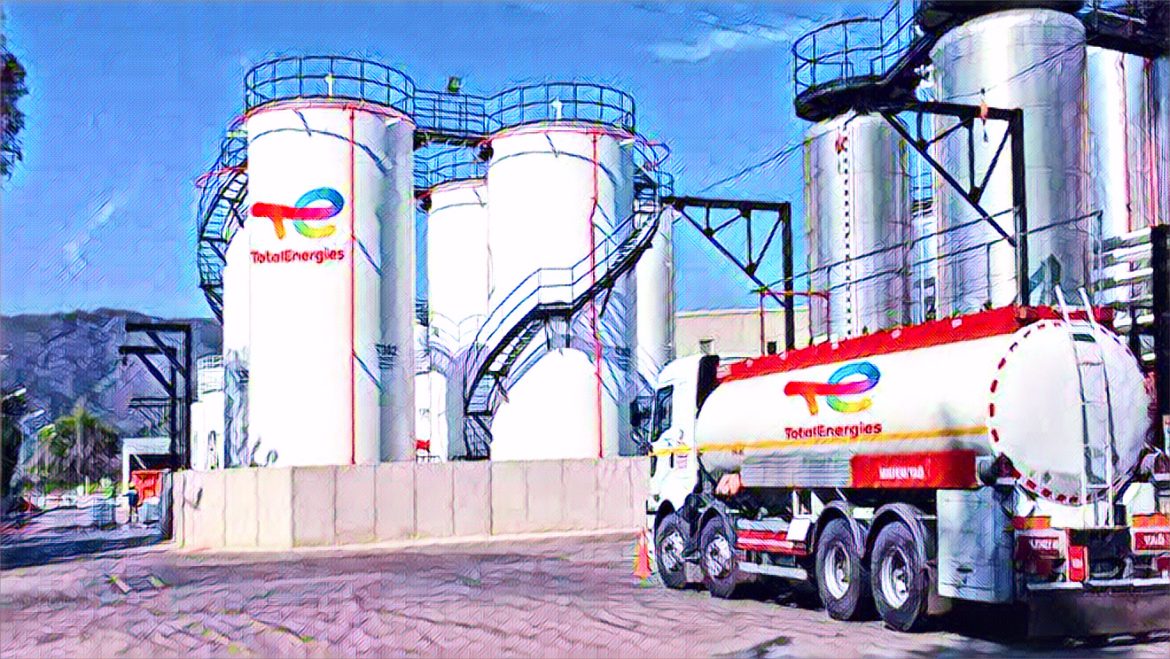South Africa’s offshore oil and gas sector is set for a major boost as TotalEnergies, the French energy giant, has secured the government’s approval to drill test wells in the Orange Basin, despite fierce opposition from environmental groups.
The Orange Basin, which extends into Namibia, is one of the most promising regions for hydrocarbon exploration in Africa, with billions of barrels of oil and trillions of cubic feet of gas discovered in the past two years. TotalEnergies owns a 40 percent stake in the Deep-Water Orange Basin (DWOB) project, in partnership with Shell and state-owned PetroSA.
The DWOB project is part of TotalEnergies’ ambitious plans to develop its upstream business in South Africa, where it has already made two giant gas discoveries off the coast in 2019 and 2020. The company plans to drill up to five exploratory wells in its Block 5/6/7 in the frontier Cape basin, as well as connect its offshore fields to PetroSA’s Mossel Bay gas-to-liquids plant, which is undergoing renovation with the help of Russia’s Gazprombank.
TotalEnergies’ offshore ventures have faced strong resistance from environmental activists, who fear the impact of drilling on marine life and the risk of oil spills. They also argue that the projects are incompatible with the global efforts to reduce greenhouse gas emissions and transition to cleaner energy sources.
In October, the South African government dismissed an appeal from more than a dozen individuals and lobby groups against the DWOB project, stating that the environmental impacts of noise and light have been adequately assessed and mitigated. However, the environmentalists have vowed to challenge the decision in court, claiming that it violates the country’s constitution and climate commitments.
South Africa’s environment minister Barbara Creecy defended the approval of the project, saying that it would create jobs and boost the economy, while also contributing to the country’s energy security and diversification. She added that the government was committed to balancing the need for development with the protection of the environment and the promotion of a low-carbon future.
South Africa, which relies heavily on coal for its electricity generation, is facing a severe energy crisis, with frequent power cuts and rising costs. The country has also pledged to reduce its emissions by 28 percent by 2030 and achieve net-zero emissions by 2050, as part of the Paris Agreement on climate change.
To achieve these goals, South Africa is looking to increase its share of renewable energy and natural gas in its energy mix, while phasing out coal. The government has recently signed power purchase agreements with TotalEnergies and other companies to supply renewable electricity from solar and wind farms. It has also launched a gas-to-power program, which aims to procure 3,000 megawatts of electricity from gas-fired power plants by 2027.
TotalEnergies, which has rebranded itself as a multi-energy company, is also involved in the renewable energy sector in South Africa, as well as in other African countries. The company has stated that it aims to reach 35 gigawatts of renewable energy capacity by 2025 and 100 gigawatts by 2030 while reducing the carbon intensity of its products by 60 percent by 2050.
TotalEnergies’ activities in South Africa reflect its strategy to balance its portfolio between oil and gas, renewables and electricity, and to position itself as a leader in the energy transition. The company is also reducing its presence in the country’s downstream sector, with the sale of its minority stake in the Natref refinery to the Prax Group.
While TotalEnergies faces significant challenges and uncertainties in its offshore oil and gas projects in South Africa, it also sees great opportunities and potential for growth. The company is confident that it can overcome the environmental and technical hurdles, and deliver value for its shareholders, partners, and customers, as well as for the South African society and environment.
Source: OilPrice.com



